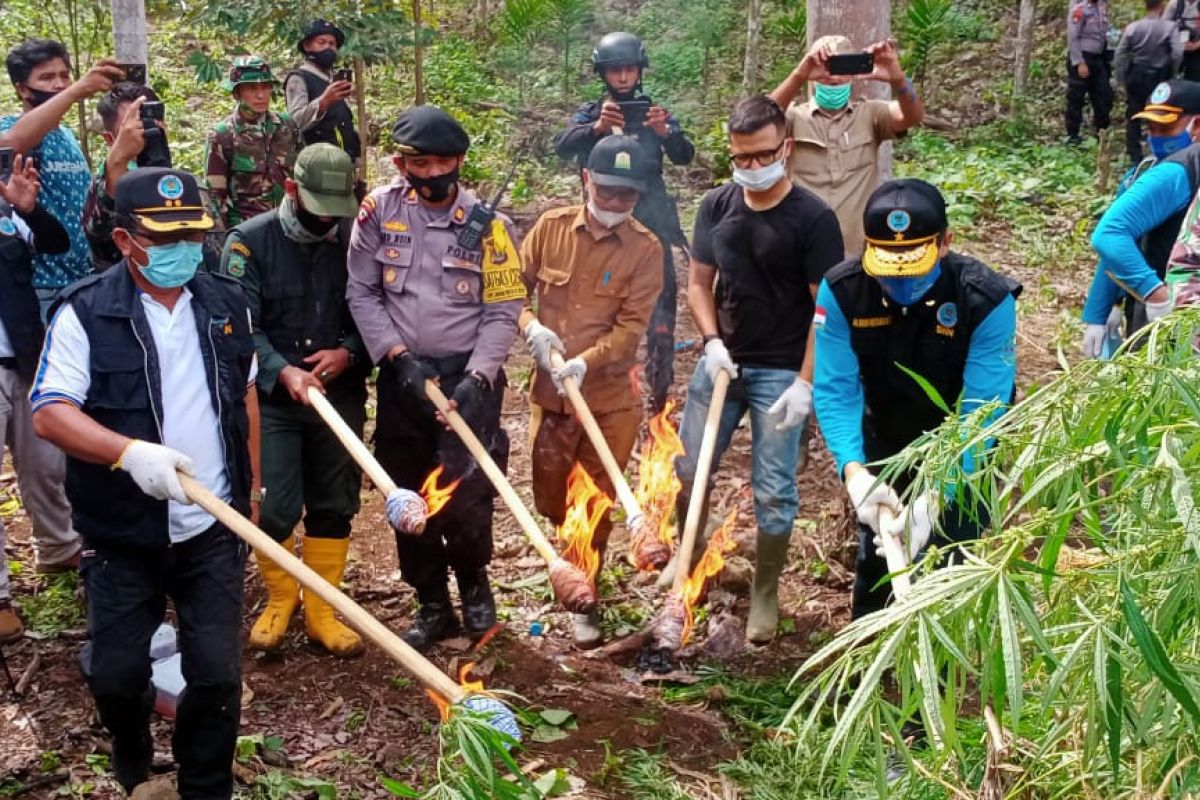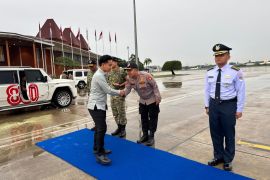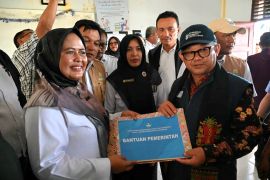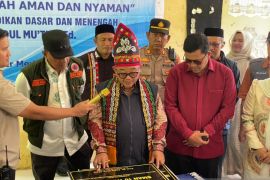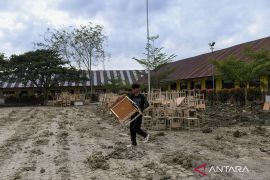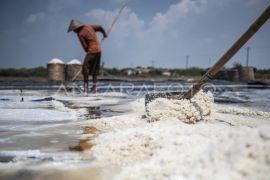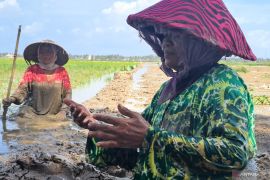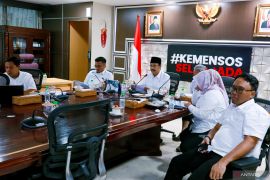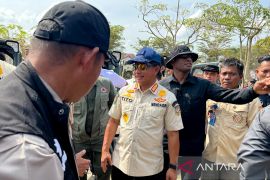Behind the beauty and fresh air of this 1,810-meter-high volcano, the slopes of the mountain remain vulnerable to the cultivation of marijuana plants.
On October 22, 2020, for instance, the National Narcotics Agency (BNN)-Aceh Office destroyed 3.5 hectares of marijuana plantation on the mountain's slope in Lamteuba area of Aceh Besar District.
Assisted by local police and military personnel, tens of BNN officers uprooted thousands of cannabis plants cultivated on a damaged forest site, and burned them.
BNN-Aceh Office Head Heru Pranoto said destroying the marijuana plantation on one of the Mount Seulawah slopes was part of the Aceh law enforcement agencies' war on drugs.
"Our common mission will never end. We keep searching for other marijuana plantations. The BNN officers have repeatedly destroyed cannabis cultivation in Aceh over this past year," Pranoto said.
Local residents' participation by giving tip-offs to BNN officers has helped them find the marijuana plants which are always cultivated in isolated areas.
Marijuana is just one of the illicit drugs that drug traffickers in Aceh have often transported to other Indonesian provinces.
Besides cannabis, they also attempt to smuggle crystal methamphetamine into Aceh from Malaysia to be traded inside and outside the province.
Within a month, Aceh police officers launched two drug raid operations in East Aceh District, leading to the seizure of 141 kilograms of crystal meth and the arrest of 15 suspects, according to Aceh Police Chief Inspector General Wahyu Widada.
Two other suspected drug dealers were gunned down after they threatened the cops attempting to arrest them.
Widada emphasized that all drug dealers apprehended in Aceh will be charged with violating Indonesia's 2009 Narcotics Law and Countermeasure and Eradication of Money Laundering (TPPU) Law.
Under the TPPU Law, the wealth of the arrested drug lords could be seized to prevent them from conducting their illicit drug businesses.
Implementation of the TPPU Law in the Aceh police's war on drugs is aimed at breaking the chain of drug trafficking networks, he noted, adding that the drug lords had ruined the lives of Acehnese youngsters through their unpardonable acts.
"Many of them join the drug ring. Abusing illicit drugs may potentially trigger other crimes," Widada cautioned.
Related news: Aceh drug dealers charged with violating narcotics, TPPU laws: police
To curtail transnational drug trafficking activities, the Aceh police continue to intensify patrols in the waters of the province's eastern coastal areas.
"Aceh's eastern coastal areas have several routes and small ports prone to smuggling activities of illicit drugs, particularly crystal methamphetamine," Wahyu Widada said.
The province's eastern coastline has frequently been used by transnational drug syndicates as their entry points for smuggling illicit drug packages into Indonesia.
Hence, intensifying marine patrols is deemed critical to break the supply chain of illicit drugs from overseas. In this way, the Aceh police can save Acehnese youth from getting siphoned into the vicious cycle of drug addiction, he remarked.
To crack down on drug rings, however, the Aceh police could not work single-handedly.
Instead, forging synergy with other related government agencies is the pressing need of the hour on account of Aceh Province's vast eastern coastline and proximity to neighboring countries' borderlines, he stated.
A solid collaboration and synergy of all related law enforcement agencies and regional governments as demanded by Aceh Police Chief Inspector General Wahyu Widada is so indispensable for Indonesia's successful battle against drug crimes and drug addiction.
In fact, Indonesia remains under grave threat from drug dealers, who perceive the country as a potential market. The value of drug trade in Indonesia is estimated to have reached at least Rp66 trillion.
In addressing this challenging reality, the Indonesian government has continued to take harsh punitive action against drug kingpins smuggling and trading drugs in the country over the past few decades.
As recently revealed by National Police Chief General Idham Azis, district courts in different parts of Indonesia had even awarded capital punishment to at least 100 drug offenders in the first half of 2020.
Not only that. Indonesian President Joko Widodo had even issued shoot-at-sight orders against drug kingpins.
However, this has failed to deter drug traffickers, who treat Indonesia as one of their key markets, even as Indonesian law enforcers continue to wage a fight against them.
The reality must be perceived by both government and other stakeholders of the nation as a call for a prolonged war, but we all must convince ourselves that, at the end, we are going to win the battle against the drug kingpins.
Related news: Police thwart attempt to smuggle 81kg of drugs from Malaysia
Related news: BNN Aceh confiscated 2.47 tons methamphetamine since 2017
Editor: Suharto
Copyright © ANTARA 2020
